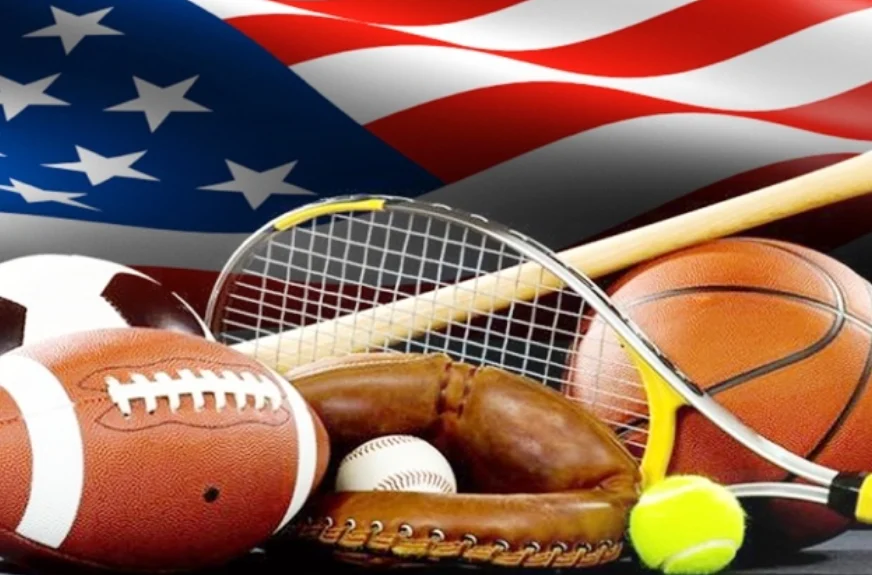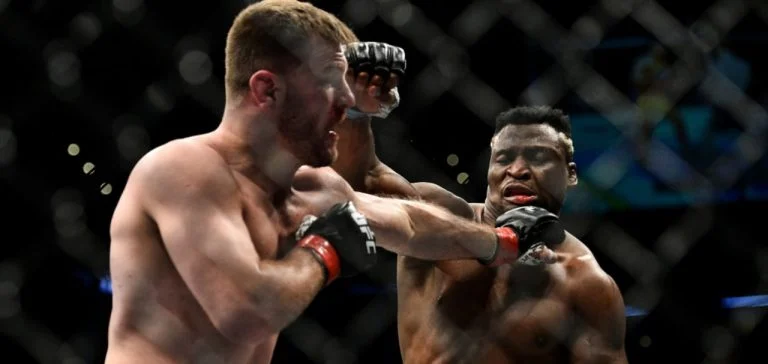Mistakes to avoid when betting on sports in the USA
Betting on sports has become a mainstream entertainment option across America, with millions wagering on everything from NFL games to March Madness. Yet beneath the excitement lies a mathematical reality: 95% of bettors lose money long-term. Most failures stem from preventable errors rather than lack of game expertise. Understanding these critical mistakes and implementing proven avoidance strategies is essential for anyone pursuing legal wagering success in the USA.
⚠️ Sobering reality: Research shows that only 3-5% of sports bettors achieve long-term profitability. The difference between winners and losers isn’t luck or sports knowledge—it’s discipline, mathematical understanding, and systematic avoidance of common psychological traps that destroy bankrolls.
Why avoiding mistakes matters
Since PASPA’s 2018 reversal, how much legal sports betting goes on in the USA has skyrocketed beyond $100 billion annually. This explosive growth outpaced bettor education, creating a perfect storm where accessibility exceeds understanding. While mobile apps make wagering effortless, the fundamentals of profitable wagering remain unchanged: discipline, analysis, and mathematical precision.
The democratization of athletic wagering through technology has a dark side. Betting on sports now requires the same analytical rigor as stock trading, yet most approach it like entertainment gambling. This disconnect between perception and reality explains why bookmakers consistently profit while the majority of individual wagerers struggle financially.
The importance of the right approach to sports betting
Profitable athletic wagering combines statistical modeling, emotional regulation, and capital preservation. The gap between winners and losers rarely stems from athletic expertise – it’s about avoiding critical errors and understanding common betting errors that plague recreational players. Many assume deep football knowledge guarantees wagering success, but mathematical realities prove otherwise.
Elite bettors treat wagers as calculated investments based on probability theory rather than emotional preferences. Even expert handicappers rarely exceed 58% win rates, making bankroll management and value identification more crucial than prediction accuracy. This mathematical framework demands patience and discipline that recreational bettors often lack.
💬 Expert insight: “The most successful athletic wagerers are those who treat it like an investment, not a lottery ticket. They understand that consistent profitability comes from making smart decisions over time, not from hitting one big score.”
Professional handicappers approach betting on professional sports like portfolio management, analyzing expected value rather than chasing favorites. They maintain detailed performance records across different scenarios, identifying profitable patterns while avoiding emotional decision-making. This systematic methodology separates professionals from casual bettors who rely on intuition.
Sportsbooks operate with built-in mathematical advantages through vigorish, requiring approximately 52.4% accuracy just to break even on standard -110 odds. Understanding this inherent disadvantage motivates successful wagerers to seek value opportunities and maintain strict selection criteria rather than wagering recreationally.
🎯 Break-even mathematics: At standard -110 odds, you must win 52.4% of your bets just to break even after the sportsbook’s commission. This means if you’re winning only 50% of your bets (which seems reasonable), you’re actually losing approximately 4.5% of every dollar wagered over time.
Common mistakes new bettors make
Recognizing frequent novice errors provides the foundation for strategic improvement. These blunders typically involve psychological biases, inadequate preparation, or misunderstanding market mechanics. Research indicates 95% of athletic wagerers experience long-term losses, with most failures directly traceable to preventable judgment errors that constitute the most common sports betting mistakes.
Athletic wagering psychology creates unique challenges where excitement and potential profits trigger emotional responses that override logical analysis. Successful wagerers develop systematic approaches to counteract these psychological traps, understanding that mental discipline often matters more than athletic knowledge.
Critical betting mistakes breakdown
▶ ❌ Betting on your favorite team without analytics
Team loyalty creates devastating blind spots in wagering judgment, leading to systematic overvaluation of favored squads while dismissing opponent strengths. This “fan bias” manifests through inflated home-field assessments, downplaying injury impacts, and overemphasizing recent memorable performances while ignoring broader statistical trends.
Professional wagerers capitalize on public sentiment by wagering against popular teams when statistical analysis contradicts public perception. The emotional investment that enhances athletic entertainment becomes a significant liability when financial stakes are involved.
⚠️ Warning: Wagering with your heart instead of your head is a fast track to losing money. Your favorite team doesn’t win just because you want them to.
▶ ❌ Ignoring bookmaker odds and margins
Beginners underestimate how sportsbook margins impact profitability, failing to understand why odds comparison drives long-term success. Consistently securing -105 instead of -110 improves profitability by approximately 4.5% – often the difference between winning and losing over extended periods.
Line shopping involves comparing prices across multiple licensed operators before placing wagers. This practice requires maintaining several accounts and checking odds systematically, but the mathematical advantage compounds significantly over time.
▶ ❌ Chasing losses
Loss chasing represents the most destructive wagering behavior, where emotional responses override mathematical logic. After losing $100, recovering requires winning $110 at standard odds. Sequential losses create exponential recovery requirements: two losses demand $231 to break even, making successful recovery from chasing losses virtually impossible.
This psychological trap stems from loss aversion, where losing pain feels twice as intense as equivalent winning pleasure. Professional bettors accept losses as inevitable business costs when betting on professional sports.
▶ ❌ Lack of bankroll management
Poor capital management destroys more wagering careers than prediction errors. The Kelly Criterion suggests optimal sizing should correlate with perceived edge and available odds, yet recreational players typically over-stake confidence while under-stake uncertainty, creating suboptimal risk-adjusted returns.
Effective bankroll management strategies extend beyond bet sizing to include detailed record-keeping, performance tracking, and situational analysis.
▶ ❌ Using only bonuses without a strategy
Sportsbook promotions offer genuine value when properly evaluated, but bonus-focused strategies often neglect fundamental handicapping development. Promotional terms frequently include rollover requirements, odds restrictions, and time limits that diminish apparent value significantly.
Smart bettors calculate actual expected value after accounting for promotional conditions rather than headline amounts.
▶ ❌ Betting without knowing the rules of a specific sport
Successful betting on sports demands comprehensive understanding beyond basic rules, encompassing strategic nuances that influence outcomes. Each sport features unique variables: weather impacts in outdoor venues, altitude effects, rest advantages in basketball/hockey, and roster philosophies affecting late-season performance.
Market dynamics vary dramatically across athletics, with NFL featuring highly efficient markets due to volume and professional attention, while smaller college competitions may offer value opportunities.
| Mistake | What happens | How to avoid | Example |
|---|---|---|---|
| ❌ Emotional betting | Poor decision-making based on feelings | ✅ Use data-driven analysis | 💡 Betting against your team when stats favor opponent |
| ❌ Poor bankroll management | Rapid depletion of betting funds | ✅ Set strict unit sizes (1-3% per bet) | 💡 $1,000 bankroll = $10-30 max bet |
| ❌ Chasing losses | Escalating bet sizes after losses | ✅ Stick to predetermined bet sizes | 💡 Take breaks after losing streaks |
| ❌ Ignoring line shopping | Missing better odds at other books | ✅ Compare odds across multiple sportsbooks | 💡 -110 vs -105 saves $5 per $100 bet |
| ❌ No research | Uninformed betting decisions | ✅ Analyze stats, injuries, trends | 💡 Check team news before NBA games |
How to bet on sports in the USA correctly
Navigating America’s athletic wagering legal framework requires understanding complex state-by-state regulations that vary significantly in taxation, licensing, and consumer protection standards. Each jurisdiction developed unique approaches reflecting local political priorities and market philosophies, directly influencing how much legal sports betting goes on in the USA across different regions.
The federal oversight focuses on anti-money laundering and interstate commerce, while states maintain primary regulatory authority. This structure has fostered innovation in regulatory approaches, with some prioritizing tax revenue while others emphasize consumer protection or market competition.
🗺️ State-by-state variance: Tax rates on sports betting revenue range from Nevada’s 6.75% to New York’s 51%, dramatically affecting the promotional offers and odds available to bettors. Understanding your state’s regulatory environment helps you maximize value and identify the most competitive operators in your jurisdiction.
Understanding the legal framework
Post-PASPA legal evolution created state-controlled regulatory environments with varying approaches to market structure and taxation. Individual states maintain jurisdiction over licensing, consumer protection, and tax policy, resulting in diverse frameworks across legal jurisdictions where taxes on sports betting can range from 6.75% in Nevada to 51% in New York.
Federal oversight addresses anti-money laundering and interstate commerce regulations while states control primary regulatory functions. This division has encouraged innovative regulatory models, with successful early adopters influencing subsequent state legislation and market development strategies.
Legal states
Legal athletic wagering operates across numerous states with established regulatory frameworks protecting consumers while generating substantial tax revenue. Leading markets include New Jersey (NJ), New York (NY), Colorado (CO), Nevada (NV), Michigan (MI), and Pennsylvania (PA). New Jersey consistently leads monthly handle, often exceeding $1 billion, while New York generates highest tax revenue through elevated rate structures.
Early-adopting states demonstrated financial success, encouraging broader legalization efforts as jurisdictions seek to capture previously illegal market revenue. Competitive markets typically benefit consumers through improved odds, enhanced promotions, and superior user experiences.
💡 Important tip: Always verify that athletic wagering is legal in your state before placing any wagers. Operating in unlicensed markets can have serious legal consequences including fines and potential criminal charges in some jurisdictions.
Betting age: 21+
All legal athletic wagering jurisdictions in the United States require wagerers to be at least 21 years old. This age requirement is strictly enforced by licensed operators across every legal sports betting USA market, who use sophisticated identity verification systems to ensure compliance.
Regulators: gaming commissions
State gaming commissions oversee legal athletic wagering operations, ensuring that operators maintain high standards for security, fairness, and responsible gambling. These regulatory bodies have the authority to investigate complaints, impose penalties, and revoke licenses for non-compliance.
Key US regulatory bodies
New Jersey Division of Gaming Enforcement
Pioneering regulatory framework that became the model for many states post-PASPA.
Nevada Gaming Control Board
Longest-running sports betting regulator with decades of enforcement experience.
Pennsylvania Gaming Control Board
Oversees one of the nation’s largest and most lucrative sports betting markets.
Online vs offline bookmakers
Most legal states offer both online and retail athletic wagering options. The choice between online vs offline betting presents distinct advantages: online platforms typically provide better odds, more staking options, and greater convenience, while retail locations offer a more traditional punting experience and face-to-face customer service.
Choosing the right sportsbook
Selecting a reputable and licensed operator is crucial for safe and enjoyable athletic wagering. The choice of operator can significantly impact your overall experience when betting on sports, from the odds offered to the security of your funds.
How to find a licensed bookmaker
Licensed sportsbooks display their regulatory information prominently on their websites and apps. Look for licensing details from recognized gaming commissions and avoid any operator that cannot provide clear documentation of their legal status.
🔍 Verification checklist: Before depositing, confirm the sportsbook displays visible licensing information, has SSL encryption (https://), offers reputable payment methods, provides responsive customer support, and appears on your state gaming commission’s approved operator list.
USD and cryptocurrency payouts
Most licensed US sportsbooks offer traditional payment methods in US dollars, including bank transfers, credit cards, and e-wallets. Some operators also accept cryptocurrency deposits and withdrawals, providing additional privacy and speed for tech-savvy bettors.
Security and responsible gaming
 Reputable sportsbooks employ state-of-the-art security measures to protect customer data and funds. They also provide comprehensive responsible gambling tools, including deposit limits, time restrictions, and self-exclusion options.
Reputable sportsbooks employ state-of-the-art security measures to protect customer data and funds. They also provide comprehensive responsible gambling tools, including deposit limits, time restrictions, and self-exclusion options.
Bankroll management tips
Effective bankroll management is the foundation of successful athletic wagering and represents one of the most crucial beginner betting tips. Without proper money management, even the most skilled handicappers will eventually go broke.
Allocation of capital to bets
Professional bettors typically risk between 1-3% of their total bankroll on any single wager when betting on professional sports. This conservative approach ensures that even extended losing streaks won’t completely deplete their wagering funds.
💰 Bankroll survival math: With proper 2% unit sizing, you can withstand a 50-bet losing streak before depleting your bankroll. At 10% per bet, just 10 consecutive losses wipes you out. Conservative unit sizing isn’t about limiting profits—it’s about ensuring you survive inevitable variance.
Maximum risk per bet
Never risk more than 5% of your bankroll on any single bet, regardless of how confident you feel. Even “sure things” can lose, and preserving capital is more important than maximizing profits on individual wagers.
Using the flat betting or proportional staking strategy
Flat wagering involves staking the same amount on every wager, while proportional staking adjusts stake sizes based on perceived edge and confidence level. Both strategies can be effective when applied consistently and disciplined.
Overview of all types of bets and their features in the USA
Understanding the various types of game wagers available is essential for developing a comprehensive staking strategy. Each wager type has unique characteristics, risk profiles, and potential rewards that suit different wagering styles and preferences.
| Bet type | Definition | Example |
|---|---|---|
| Moneyline | Straight win/loss bet on team or player | Chiefs -150 to beat Broncos +130 |
| Spread | Point handicap to level playing field | Lakers -7.5 vs Warriors +7.5 |
| Totals (Over/Under) | Combined score over or under set number | Over/Under 45.5 points in NFL game |
| Parlays | Multiple bets combined for higher payout | 3-team parlay: Chiefs, Lakers, Over 45.5 |
| Futures | Long-term bets on season outcomes | Super Bowl winner, MVP awards |
| Prop Bets | Specific player or game events | Player to score first touchdown |
| Live Betting | Real-time wagering during games | Next team to score while game plays |
| Teasers | Modified parlay with adjusted point spreads | 6-point teaser moving spreads favorably |
| Pleasers | Opposite of teasers with worse odds for higher payouts | 6-point pleaser moving spreads unfavorably |
| Round Robin | Multiple parlays from same selection of teams | All possible 2-team parlays from 4 teams |
Betting table
| Bet type | Features | Pros ✅ | Cons ❌ | Best for 💡 |
|---|---|---|---|---|
| Moneyline | Simple win/loss | ✅ Easy to understand ✅ No point spreads |
❌ Often poor odds on favorites ❌ Limited value |
💡 Beginners, upset hunters |
| Point Spread | Handicap betting | ✅ Levels playing field ✅ Better odds variety |
❌ Must win by margin ❌ Can lose on late scores |
💡 Experienced bettors |
| Totals | Combined scoring | ✅ Winner irrelevant ✅ Weather/pace impacts |
❌ Game flow dependent ❌ Overtime affects outcome |
💡 Statistical analysts |
| Parlays | Multiple legs | ✅ High potential payouts ✅ Small stake big win |
❌ All legs must win ❌ Low probability |
💡 Recreational fun betting |
| Live Betting | In-game wagering | ✅ React to game flow ✅ Find value mid-game |
❌ Fast-moving odds ❌ Emotional decisions |
💡 Quick decision makers |
🎰 Parlay reality check: A 10-team parlay at standard -110 odds pays 600-to-1, but your actual probability of winning is closer to 1000-to-1. The house edge on parlays typically ranges from 10-30%, making them one of the least profitable bet types for serious bettors despite their entertainment value.
Guide to analyzing statistics before placing a bet
Statistical analysis forms the backbone of successful game wagering. Understanding key metrics and how to interpret them can provide significant advantages over casual bettors who rely primarily on intuition and basic team knowledge. Advanced punters utilize regression analysis to identify which statistics have predictive value versus those that merely reflect past performance, distinguishing between correlation and causation in game data. Machine learning algorithms now enable sophisticated pattern recognition in massive datasets, allowing sharp players to discover hidden inefficiencies in staking markets that traditional statistical methods might overlook.
Why data matters
Professional bettors understand that betting on professional sports requires treating each wager as a data-driven investment decision. Statistical analysis helps identify value wagers where the true probability of an outcome differs from what the wagering odds suggest.
📈 Data-driven edge: Professional handicapping services that rely on advanced statistical models achieve win rates of 55-58%, compared to 48-50% for casual bettors using intuition. That 7% difference translates to profitability versus guaranteed long-term losses when accounting for the sportsbook’s commission.
Expected goals in football
Expected Goals (xG) measures the quality of scoring chances created and conceded by teams. This metric provides insight into underlying team performance that may not be reflected in basic win-loss records or goal differentials.
PER in NBA
 Player Efficiency Rating (PER) standardizes individual player contributions across different statistical categories. Understanding PER helps bettors assess the true impact of key players on team performance and identify potential value in player prop bets.
Player Efficiency Rating (PER) standardizes individual player contributions across different statistical categories. Understanding PER helps bettors assess the true impact of key players on team performance and identify potential value in player prop bets.
Batting average in MLB
While traditional batting average remains important, advanced metrics like OPS (On-base Plus Slugging) and wRC+ (Weighted Runs Created Plus) provide more comprehensive evaluations of player offensive contribution in baseball punting.
Tools for bettors
Modern athletic wagerers have access to unprecedented amounts of data and analytical tools. Leveraging these resources effectively can provide significant advantages in identifying profitable wagering opportunities.
ESPN, FiveThirtyEight, official statistics portals
ESPN provides comprehensive basic statistics and injury reports, while FiveThirtyEight offers advanced analytics and predictive modeling. Official league statistical portals like NBA.com/stats and Pro-football-reference.com provide the most detailed and accurate data available.
💡 Pro tip: Combine multiple data sources to get a complete picture. No single source provides all the information needed for optimal wagering decisions. Cross-referencing ESPN injury reports with FiveThirtyEight’s projections and official league stats creates a comprehensive analytical foundation.
Value betting basics
Value wagering involves identifying situations where the probability of an outcome is higher than what the wagering odds suggest. This approach focuses on long-term profitability rather than simply picking winners.
How to find “valuable” odds
Calculate implied probability from wagering odds and compare it to your assessment of true probability. When your calculated probability exceeds the implied probability, you’ve potentially found a value bet.
Example of calculating a $100 bet
If you believe a team has a 60% chance of winning, but the odds imply only 50% (even money +100), you have a 10% edge. On a $100 bet, this edge translates to $10 of expected value over the long term.
🎯 Value betting formula: Expected Value = (Probability of Winning × Potential Profit) – (Probability of Losing × Stake). Positive EV indicates a profitable bet over time, even if individual wagers lose. Consistently finding +EV situations is the only sustainable path to long-term profitability.
Using live data and analytics
Real-time data feeds and advanced analytics platforms allow wagerers to identify in-game wagering opportunities and adjust their strategies based on evolving game situations.
Responsible gambling & player protection
Responsible gambling practices are essential for maintaining a healthy relationship with athletic wagering. Licensed operators in the United States are required to provide comprehensive player protection tools and resources. Modern responsible gambling frameworks incorporate artificial intelligence monitoring systems that detect unusual wagering patterns and automatically trigger intervention protocols when problematic behavior emerges. These advanced systems analyze factors like deposit frequency, bet sizing progression, and session duration to identify potential gambling disorders before they escalate into serious financial or personal crises.
Deposit limits
Most licensed sportsbooks allow players to set daily, weekly, or monthly deposit limits. These self-imposed restrictions help prevent impulsive wagering behavior and ensure that gambling remains within affordable limits.
📋 Tax reminder: Remember that taxes on sports betting winnings apply to all profits above $600, and proper record-keeping is essential for tax compliance. The IRS requires reporting of all gambling winnings, and failure to properly report can result in penalties and interest charges.
Self-exclusion programs
Self-exclusion programs allow individuals to voluntarily ban themselves from gambling activities for specified periods. These programs are legally binding and provide an important safety net for those struggling with gambling-related problems. Multi-state database sharing ensures that self-excluded individuals cannot circumvent restrictions by registering with operators in different jurisdictions, creating a comprehensive protective network across state lines. Advanced biometric verification systems, including facial recognition technology, have been implemented by leading operators to prevent self-excluded players from accessing gambling platforms through alternative accounts or identity manipulation.
Hotlines in the USA
National and state-specific gambling helplines provide confidential support for individuals experiencing gambling-related issues. The National Council on Problem Gambling operates a 24/7 helpline (1-800-522-4700) available to anyone seeking assistance. These helplines now integrate with crisis intervention protocols that can provide immediate financial counseling and connect callers with local treatment facilities within hours of initial contact. Multilingual support services have expanded significantly, with specialized counselors trained in cultural sensitivity to address gambling addiction within diverse communities that may have different attitudes toward seeking help.
🆘 Warning signs: If you find yourself betting more than you can afford, chasing losses, lying about your betting activity, or gambling to escape problems, seek help immediately. Early intervention dramatically improves recovery outcomes, with success rates exceeding 70% when treatment begins before severe financial consequences develop.
Why choose BetWhale for safe betting?
BetWhale stands out in the competitive US athletic wagering market by offering a comprehensive platform that prioritizes sportsbook safety, competitive odds, and innovative features that enhance the overall wagering experience.
✅ Wide selection of sports
From NFL and NBA to niche markets like table tennis and esports, BetWhale covers all major athletic events with competitive odds and extensive wagering options.
✅ Cryptocurrency deposits
Bitcoin, Ethereum, and other cryptocurrency options provide fast, secure, and anonymous funding methods for tech-savvy bettors.
✅ Fast payouts
Withdrawal processing typically completed within 24-48 hours, ensuring quick access to winnings without unnecessary delays.
✅ Bonuses for new players
Generous welcome bonuses and ongoing promotions provide additional value for both new and existing customers.
💬 Expert opinion: “BetWhale combines the security of traditional bookmakers with the innovation of cryptocurrency wagering, making it an excellent choice for modern athletic wagerers who value both safety and cutting-edge features.”
The platform’s commitment to responsible gambling includes comprehensive player protection tools, detailed wagering history tracking, and partnerships with problem gambling organizations to ensure a safe wagering environment for all users.
Ready to Start Your Betting Journey?
Join thousands of satisfied customers who trust BetWhale for their athletic wagering needs. Experience the difference that professional-grade tools and exceptional customer service can make.
Bet and Play with BetWhale
FAQ
What are the most common mistakes new bettors make in the USA?
New bettors frequently make emotional decisions based on team loyalty rather than objective analysis. They also tend to ignore bankroll management principles, chase losses with larger bets, and fail to shop for the best odds across multiple sportsbooks.
How do I manage my bankroll effectively?
Set aside a dedicated amount for wagering that you can afford to lose. Risk no more than 1-3% of your bankroll on any single wager, and never chase losses by increasing sizes. Maintain detailed records of all activity.
Can I bet safely using cryptocurrency in the USA?
Yes, many licensed US sportsbooks now accept cryptocurrency deposits and withdrawals. Cryptocurrency offers enhanced privacy, faster processing, and lower fees, but ensure you’re using a properly licensed and regulated sportsbook.
What is the best way to avoid chasing losses?
Establish strict staking limits before you start and stick to them regardless of short-term results. Take regular breaks from staking, especially after losing streaks, and never increase stake sizes to try to recover losses quickly.
How can I choose a legal sportsbook in the USA?
Always verify that any sportsbook is properly licensed by your state’s gaming commission. Check for clear regulatory information on their website, read customer reviews, and ensure they offer robust security measures and responsible gambling tools.









